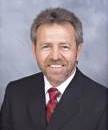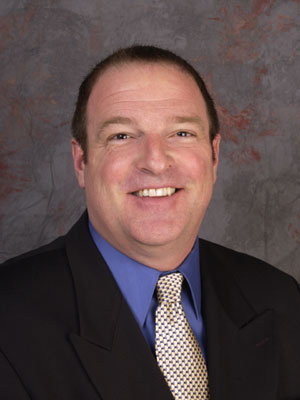

Become A Hero To LB Animals With A $15 Membership. Learn About Us, Click Here.

Saving Lives Thru Spay/Neuter & Education





3853 Atlantic Ave.
|
Click here |
House Energy Bill Unveiled, Would Effectively Block State & Other Regulatory Bodies From Deciding Where & When LNG Facilities Are Built...But Doesn't Include Eminent Domain
(April 6, 2005) -- A federal Energy Bill has been unveiled for markup in the House Energy and Commerce Committee with a provision -- stemming from actions involving the Port of LB -- that would give the Federal Energy Regulatory Commission (FERC) primary authority to decide where and on what time schedule Liquefied Natural Gas (LNG) plants are built.
The bill's text, released in connection with an April 5 House Energy and Commerce Committee markup (and posted below) would effectively prevent the state regulatory bodies (like the CA Public Utilities Commission, CPUC) from deciding LNG siting issues...and relegate CPUC enforcement of safety laws into offering advice to FERC.
The House bill does not give FERC the power of eminent domain (the ability to take land for an LNG facility) which the Port of LB and LB City Hall had strongly opposed. However, it does create deadlines within which FERC, state and other agencies would have to act...and includes consequences if they don't.
Congressman Cliff Stearns (R., FL) said during opening statements at the April 5 Committee markup of the bill:
"A company wanted to build a $450 million Liquefied Natural Gas terminal in Long Beach, California...This bill would make it clear that FERC is the lead agency for coordinating all federal authorizations and would require the agency to establish a permit that meets a schedule...[T]his bill will triumph and help to bring in that plant, that $450 million Liquefied Natural Gas import terminal to Long Beach would certainly help for California..."
The bill would prevent state and other regulatory bodies from deciding whether to site LNG facilities in their communities...an issue in which communities in coastal states like CA (with potential import sites) would be most affected.
It wasn't immediately clear how the bill's language might affect the ability of the Port of LB to say "no" to the proposed LNG facility as Port landlord...a power LB's City Attorney has said the Port has under current law.
Bry Myown, an opponent of siting an LNG facility in the Port of LB, warned last year that the Port of LB's conduct had invited a "test case" in which LB and cities nationally might lose their ability to say "no."
The bill requires an order from FERC before any LNG or gasification natural gas terminal can be constructed, expanded or operated. It designates FERC as the lead agency for coordinating all Federal authorizations and requires FERC to establish a schedule for all proceedings required under Federal law to construct, expand or operate such terminals.
The bill requires "consultation" with -- not approval by -- the State in the area of State and local safety.
In opening statements on April 5, House Committee members staked out sharply polarized positions. Some salient excerpts:
Rick Boucher (D., VA): ...I've not been convinced that there's a need to give the Federal Energy Regulatory Commission the authority to site transmission facilities over the opposition of the state authorities currently charged with making those decisions, and I'll be offering an amendment to strike that provision during the course of the markup...
Cliff Stearns (R., FL): ...A company wanted to build a $450 million Liquefied Natural Gas terminal in Long Beach, California. And the federal regulators claimed they had the jurisdiction over this. Well, it turns out that California said no, we have the jurisdiction; we can intervene; FERC does not have the authority. This bill would make it clear that FERC is the lead agency for coordinating all federal authorizations and would require the agency to establish a permit that meets a schedule. so that clearly is a case where this bill will triumph and help to bring in that plant, that $450 million Liquefied Natural Gas import terminal to Long Beach would certainly help for California...
Henry Waxman (D., CA): ...[The bill] carves loopholes in the laws protecting our coastlines, our forests and our public lands...This is energy legislation written by George Orwell. Sound policies have been displaced by propaganda. Warnings of scientists and national security experts have been ignored and the special interests have been given the key to the federal trough...
Hilda Solis (D., CA):...and [the bill] limits the ability of our states to protect our citizens from liquefied natural gas refineries and leaking underground storage tanks. That is why I cannot support this legislation in its current form...
Lois Capps (D. CA)...I'm disappointed that the bill contains a number of provisions that have never been the subject of hearings by the Committee, including the LNG provisions... The LB LNG issue came to national attention after a Mitsubishi subsidiary, "Sound Energy Solutions," applied to FERC -- but not to the CA Public Utilities Commission -- for permission to build and operate an 80+ million gallon LNG terminal in the Port of LB. The Port of LB advanced the firm's FERC application...during which FERC said it SES didn't need CA authority because FERC exclusive decision making jurisdiction.
CPUC sued FERC in federal court, seeking to enforce CA law (the case is pending). The now-pending Congressional action could make the CPUC's court case moot.
In November 2004, LBReport.com wrote:
"In my view, LB's Board of Harbor Commissioners, and the City of LB, have a duty under the state constitution to uphold CA law," Ms. Myown said, noting "By facilitating the application solely through FERC, the Port of LB has effectively taken a position against CA's Public Utilities Commission...and the Port's action now threatens to become a position against local control."
She added, "The Port of LB could have the distinction of helping deprive communities across the U.S. of control over LNG facilities in their areas. Members of the U.S. Conference of Mayors ought to question whether Mayor Beverly O'Neill should speak for them on this issue."...
LB is believed to be the only CA community in which an onshore LNG application is currently being entertained. Plans for an onshore LNG facility in Eureka, CA were abandoned amid community opposition. A proposed LNG facility in Vallejo, CA (on the former Mare Island Naval Shipyard site) was likewise dropped following local resistance... Below is the House bill's LNG text prior to markup:
(11) ‘Liquefaction or gasification natural gas terminal’ includes all facilities located onshore or in State waters that are used to receive, unload, load, store, transport, gasify, liquefy, or process natural gas that is imported to the United States from a foreign country, exported to a foreign country from the United States, or transported in interstate commerce by waterborne tanker, but does not include:
(d) AUTHORIZATION FOR CONSTRUCTION, EXPANSION, OR OPERATION OF LIQUEFACTION OR GASIFICATION NATURAL GAS TERMINALS.
(1) COMMISSION AUTHORIZATION REQUIRED. No person shall construct, expand, or operate a liquefaction or gasification natural gas terminal without an order from the Commission authorizing such person to do so.
(2) AUTHORIZATION PROCEDURES.
(A) NOTICE AND HEARING. Upon the filing of any application to construct, expand, or operate a liquefaction or gasification natural gas terminal, the Commission shall
(B) DESIGNATION AS LEAD AGENCY.
(i) IN GENERAL. The Commission shall act as the lead agency for the purposes of coordinating all applicable Federal authorizations and for the purposes of complying with the National Environmental Policy Act of 1969 (42 U.S.C. 4312 et seq.) for a liquefaction or gasification natural gas terminal.
(ii) OTHER AGENCIES. Each Federal agency considering an aspect of the construction, expansion, or operation of a liquefaction or gasification natural gas terminal shall cooperate with the Commission and comply with the deadlines established by the Commission.
(C) SCHEDULE.
(i) COMMISSION AUTHORITY TO SET SCHEDULE. The Commission shall establish a schedule for all Federal and State administrative proceedings required under authority of Federal law to construct, expand, or operate a liquefaction or gasification natural gas terminal. In establishing the schedule, the Commission shall
(II) the agency has failed to act on any remand by the Court within the deadline set by the Court, that approval may be conclusively presumed by the Commission.
(D) EXCLUSIVE RECORD. The Commission shall, with the cooperation of Federal and State administrative agencies and officials, maintain a complete consolidated record of all decisions made or actions taken by the Commission or by a Federal administrative agency or
officer (or State administrative agency or officer acting under delegated Federal authority)
with respect to the construction, expansion, or operation of a liquefaction or gasification natural gas terminal. Such record shall be the exclusive record for any Federal administrative proceeding that is an appeal or review of any such decision made or action taken.
(E) STATE AND LOCAL SAFETY CONSIDERATIONS.
(i) IN GENERAL.—The Commission shall consult with the State commission of the State in which the liquefaction or gasification natural gas terminal is located regarding State and local safety considerations prior to issuing an order pursuant to this subsection and consistent with the schedule established under subparagraph (C)
The State commission of the State in which a liquefaction or gasification natural gas terminal is located may, after the terminal is operational, conduct safety inspections with respect to the liquefaction or gasification natural gas terminal if
(I) the State commission provides written notice to the Commission of its intention to do so; and
(II) the inspections will be carried out in conformance with Federal regulations and guidelines. Enforcement of any safety violation discovered by a State commission pursuant to this clause shall be carried out by Federal officials. The Commission shall take appropriate action in response to a report of a violation not later that 90 days after receiving such report.
(iii) STATE AND LOCAL SAFETY CONSIDERATIONS. For the purposes of this subparagraph, State and local safety considerations include:
(I) the kind and use of the facility;
(3) ISSUANCE OF COMMISSION ORDER.
(A) IN GENERAL. The Commission shall issue an order authorizing, in whole or in part,
the construction, expansion, or operation covered by the application to any qualified
applicant
(i) unless the Commission finds such actions or operations will not be consistent
with the public interest; and
(I) able and willing to carry out the actions and operations proposed; and
(B) TERMS AND CONDITIONS. The Commission may by its order grant an application, in whole or in part, with such modification and upon such terms and conditions as the Commission may find necessary or appropriate.
(C) LIMITATIONS ON TERMS AND CONDITIONS TO COMMISSION ORDER.
(i) IN GENERAL. Any Commission order issued pursuant to this subsection before January 1, 2011, shall not be conditioned on:
(I) a requirement that the liquefaction or gasification natural gas terminal offer service to persons other than the person, or any affiliate thereof, securing the order; or
(II) any regulation of the liquefaction or gasification natural gas terminal’s rates, charges, terms, or conditions of service.
(ii) INAPPLICABLE TO TERMINAL EXIT PIPELINE.
Clause (i) shall not apply to any pipeline subject to the jurisdiction of the Commission under section 7 exiting a liquefaction or gasification natural gas terminal.
(iii) EXPANSION OF REGULATED TERMINAL. An order issued under this paragraph that relates to an expansion of an existing liquefaction or gasification natural gas terminal, where any portion of the existing terminal continues to be subject to Commission regulation of rates, charges, terms, or conditions of service, may not result in
(I) subsidization of the expansion by regulated terminal users;
Committee markup of the bill (during which Committee members offer proposed amendments on which Committee votes are taken) is expected to reach the LNG sections some time next week.
Contact us: mail@LBReport.com |